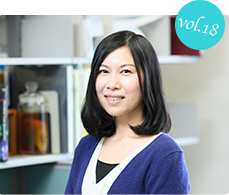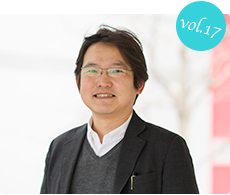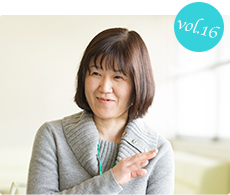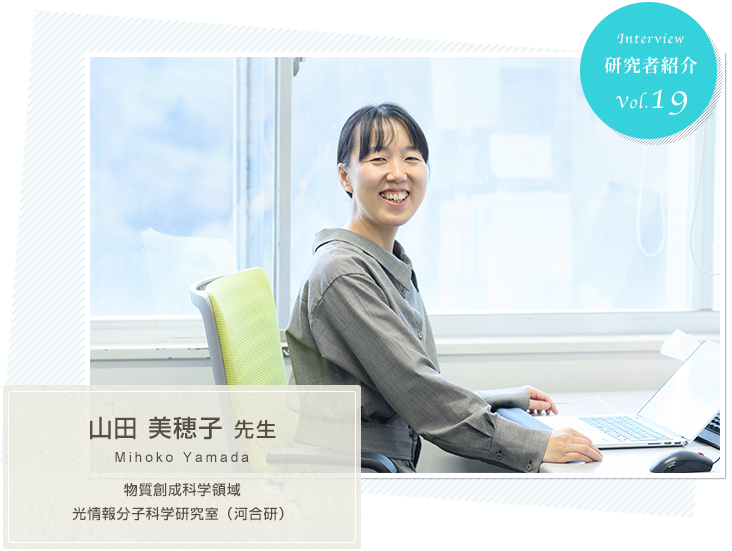
![]()
He received his Ph.D. from the Graduate School of Science, University of Tokyo in 2013. He was a research fellow at JSPS, a research fellow at the Graduate School of Engineering at Osaka University, a research fellow at the Graduate School of Science at Osaka University, and a research assistant at the Graduate School of Science at Osaka University before assuming his current position in April 2018. He specializes in complex chemistry and photochemistry. Currently, he is working on the synthesis and photochemical properties of organic and complex compounds with curved corannulene motifs.
Why did you become a researcher?
Ever since I was in high school, I had a vague idea that if I were to pursue a career in science, it would be as a researcher. It was pure curiosity, or maybe it was because I liked to think about and explore what I was interested in, or maybe it was because my father was a researcher in physics and I had a longing to be a researcher. When I went to university and actually started doing research, I enjoyed it so much that it strengthened my resolve. I entered the University of Tokyo from the master's program, but at that time I was thinking, "I will get a Ph.D. and become a researcher," and I was even more determined when I entered the second semester of the Ph.D. program. I had no choice but to do research when I reached the second semester of the Ph.D. program.
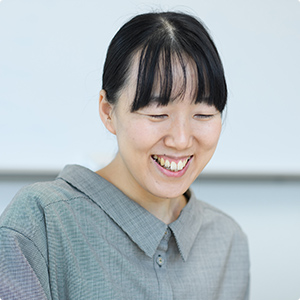
In other words, I wanted to do research that was not useful. Research that can lead to immediate applications can be done in companies, but I wanted to do basic research that might be useful in the future, say hundreds of years from now, but that would not lead to immediate and easily understandable applications. Of course, there is curiosity, but considering that most of today's science and technology started from such basic discoveries, I think it is important research that will become a cornerstone of society.
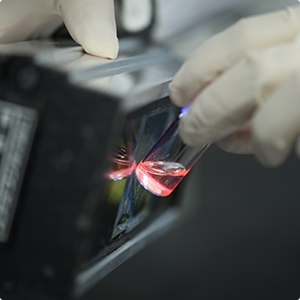
As for my field of study, I majored in Complex Chemistry as an undergraduate. Coordination chemistry is colorful chemistry. Coordination compounds, which are metals and organic substances bonded together at the molecular level, are used in inks, red blood cells, the red component of blood, and catalysts. It is fun just to see the color change, but I find it interesting that it can be explained at the level of molecules and electrons that are invisible to the human eye. For example, if we want a luminescent material, we can to some extent design how to make it more luminescent and what color it will be, but I would like to come up with a design guideline that has never been done before and clarify aspects that cannot be explained by conventional theories. Molecules move very fast, and I think that if we use light that is faster than the movement of molecules, we may be able to see the movement of molecules and clarify the relationship between the movement and the properties of molecules. I would like to continue my research in the fusion area of complex chemistry and photochemistry.
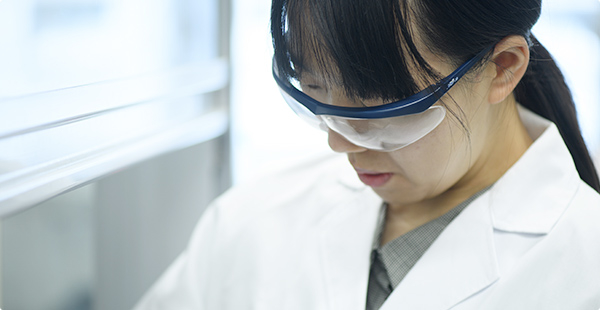
After receiving my Ph.D., I spent two years as a postdoctoral researcher in photochemistry and complex chemistry at the Graduate School of Engineering, Osaka University. After that, I was appointed as a special assistant professor at the same university, where my main research project was complex chemistry. However, I still wanted to work on photochemistry, so I came to this university.
I think the research environment at NAIST, including the equipment, is good. There are many common instruments as well as laboratories, and they are easy to use because the fees are not expensive. In the past, I sometimes had to think about the amount of measurement while considering the equipment usage fees, so I appreciate that the burden is small. In addition, each instrument has its own technical staff, so we can consult with them about requested measurements and the use of non-specialized instruments. When we request measurements outside the university, there are times when we feel sorry for our collaborators if we do not get results, so it is sometimes difficult to make a request unless we are sure that we will be able to get some results. In other words, the hurdle for requesting measurements with a low success rate is high. In this sense, our university has a low bar, which makes it easy to accept challenges.
In our lab, we have journal meetings and debriefing sessions once or twice a week. I find Dr. Kawai very supportive. Discussions are held as needed. While respecting our independence in setting research topics, etc., he provides us with various consultations and guidance in research and education. However, I feel that there are few opportunities to participate in symposia and lectures with foreign guests on campus. This may be due to the location.
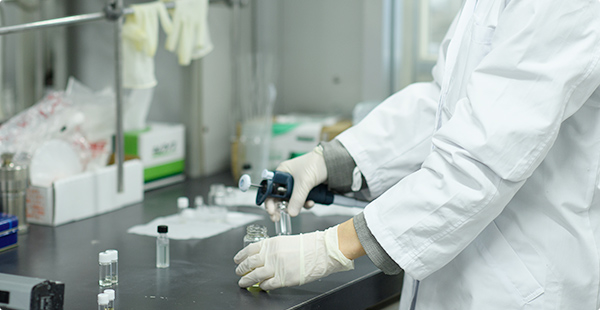
Daily schedule
In the morning, I have a progress meeting with a group of less than 10 students in the lab that I supervise for about 30 minutes starting around 9:00. After that, I mainly supervise students. For example, I have discussions with students and prepare them for conferences. It is difficult to provide individualized guidance and it is a daily process of trial and error. Based on the data provided by the students, we study and develop them together and summarize them in a paper. At the same time, I think about the next research, conduct my own experiments, and write papers. In addition, there are national and international collaborations, and recently we invited researchers and students from Indonesia and organized workshops.
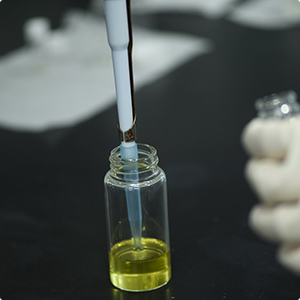
I am still searching for my lifestyle. Recently, I have been concentrating on student teaching and miscellaneous work during the day, so that I have time for trivial consultations when I am at my desk. If I don't have experiments, I try to go home by 8 p.m. and settle down after dinner to write papers or study. Sometimes students invite me to have dinner with them. Before I came to this university, I used to come home at 1:00 pm, but now my lifestyle has improved, and I feel blessed to be able to work with students on research topics of my own design.
I take a good rest on weekends when there are no academic conferences. Immediately after I arrived at the Institute, I used to go to Osaka for fun, but lately I enjoy the quiet environment of Nara. Shopping used to be difficult, but since I started using the Internet supermarket, I have more time to spare and can meet up with friends. I also enjoy reading books, watching movies, and relaxing over a cup of tea. I rent a field on campus, and last year, with the help of students, I was able to harvest the crops and enjoy them. I don't have much time to travel, but instead I look forward to delicious food at conferences and other business trips. During the Obon and New Year holidays, I go back to my hometown in Ishikawa. My mother comes to Nara to visit me, so we sometimes go sightseeing together.
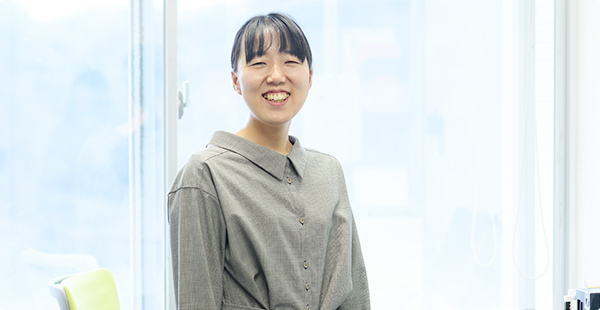
On issues related to the development of the research environment
I think the government budget for research is decreasing rapidly. I think the government is becoming more generous to young researchers in terms of Grants-in-Aid for Scientific Research, but in my case, I think the situation will become more difficult from now on. I am worried that I will have to compete with veteran professors when I am no longer a young scientist. In addition, although many researchers, including Nobel laureates, have mentioned the importance of basic research, I think it is becoming more difficult to get funding for basic research. For example, applications for foundation grants sometimes require that the usefulness of the research be clearly stated in a straightforward manner, and it can be difficult for people to understand the value of the research if it is not related to technologies they are familiar with. It is difficult to cover the cost of research solely with the Grant-in-Aid for Scientific Research, so I think this will become a problem in the future.
When I listen to the stories of female professors in the material field at lunch meetings, I think it seems to be difficult for them when they have life events such as childbirth. But you never know until you are in that situation. I am sometimes underestimated in terms of appearance, but I don't feel any particular difference between men and women in general. I think it is good to learn about life events through such opportunities
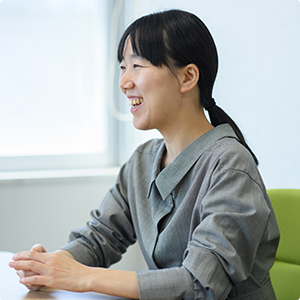
(March 2020)

-
2020.3 updated
Data Science Center
-
2019.3 updated
Division of Information Science
-
2019.3 updated
Division of Biological Science






